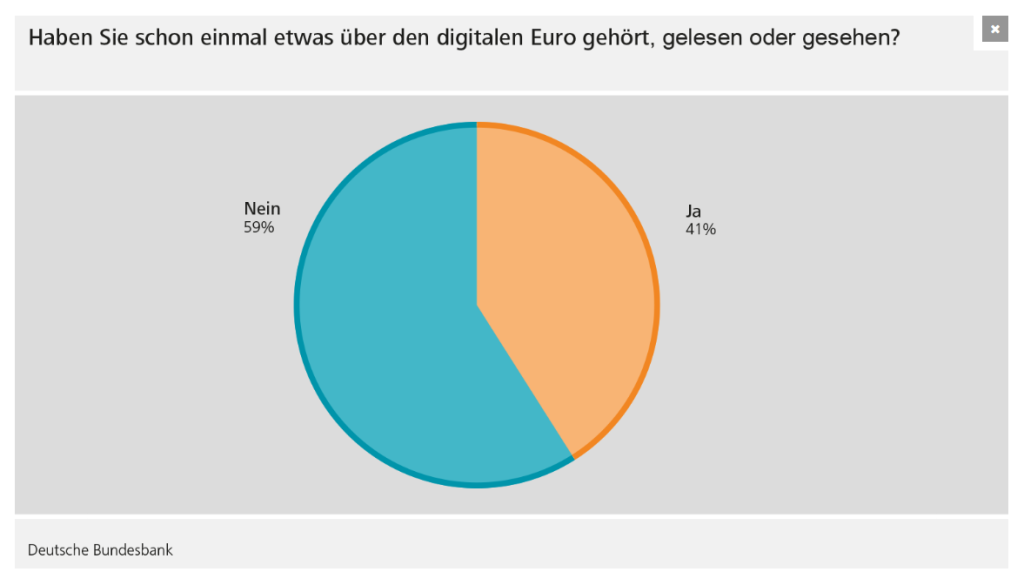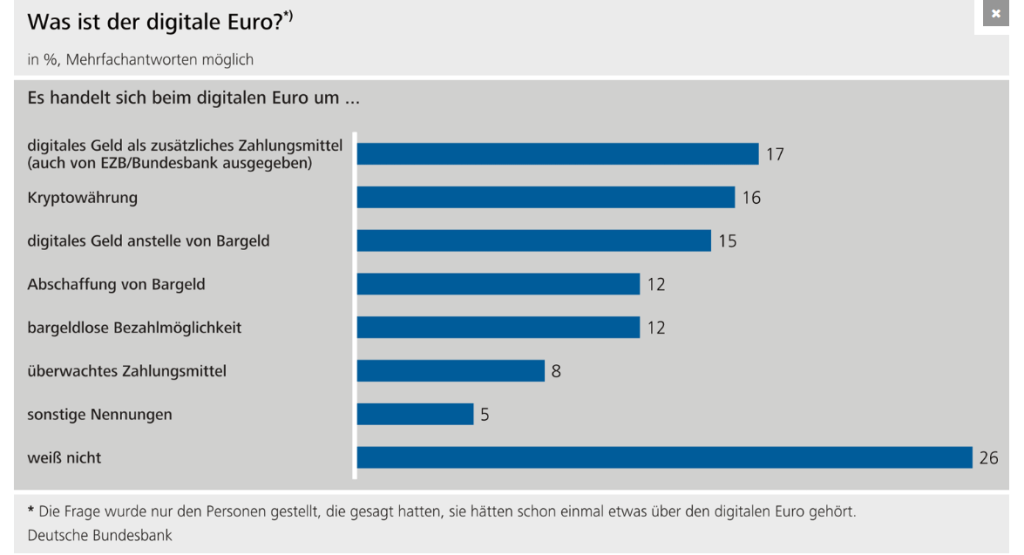A recent survey by Germany’s central bank, the Deutsche Bundesbank, reveals a surprising openness among Germans towards the digital euro, the European Central Bank’s (ECB) proposed digital currency. However, the survey also exposes a significant knowledge gap that needs to be addressed before the system’s potential can be fully realized.
While a staggering three-fifths (60%) of Germans surveyed admitted to having never encountered information about the digital euro, half (50%) expressed a willingness to potentially use it if offered as an additional payment option. This openness, despite a lack of familiarity, suggests a public appetite for innovation in the payments landscape.

Misconceptions Cloud Curiosity
However, the survey also paints a picture of confusion surrounding the digital euro. Nearly a third of respondents (30%) mistakenly believed it would replace cash entirely, highlighting the need for clear and concise public education efforts. The ECB has repeatedly emphasized that the digital euro would be complementary to cash, offering a secure and convenient alternative for digital transactions.

Privacy emerged as the single most important factor for Germans considering the digital euro. Over three-quarters (76%) deemed strong privacy protections “very important” or “important.” This concern likely stems from the ever-present issue of data privacy in the digital age. The ECB assures users that their data will be far more secure with the digital euro than with existing commercial payment solutions.
Building Trust In A Digital Future
The survey results underline the importance of comprehensive public information campaigns, stated Burkhard Balz, Bundesbank board member responsible for the digital euro project. Balz added that under the current plans, people would be able to make their first payments with the digital euro no earlier than 2028.
The ECB is aiming to bridge this knowledge gap through a multi-pronged approach. Public information campaigns will explain the concept of the digital euro, emphasizing its role as a complement to cash, not a replacement. Additionally, the ECB is committed to building a system that prioritizes user privacy. They claim that transaction details will be known only to the payer and the payee, with no unnecessary data collection by authorities.
Related Reading: Elon Musk Shuts Down Crypto-Trump Talks: ‘Never Discussed Bitcoin With Him’
Digital Euro: The Road To 2028Currently, the digital euro is in its initial phase, with a focus on finalizing regulations and exploring potential distribution channels. This preparation phase is expected to conclude in October 2025. Germans, and Europeans as a whole, shouldn’t anticipate utilizing the digital euro for everyday transactions until at least 2028, according to Bundesbank estimates.
Featured image from WSBI ESBG, chart from TradingView









